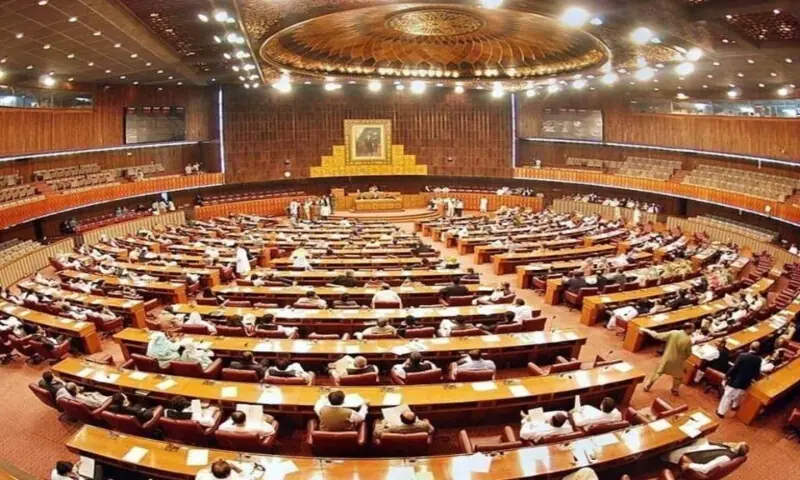Government Tables Key Amendment Bill Amid Protests
In a charged session of Pakistan’s Senate, Law Minister Azam Nazeer Tarar presented the 27th Constitutional Amendment Bill on Thursday. The session, presided over by Chairman Yousaf Raza Gillani, soon descended into protest and political confrontation as opposition lawmakers announced a boycott of the voting process.
The bill, part of ongoing constitutional reforms, has sparked debate over proposed changes to the judiciary’s authority, particularly concerning the Supreme Court’s suo motu powers and judicial transfers. Despite opposition protests, the government pushed ahead, describing the measure as essential for institutional balance and judicial accountability.
Opposition Boycotts Vote, Questions Transparency
According to parliamentary sources, opposition parties — including Pakistan Tehreek-e-Insaf (PTI) and Jamaat-e-Islami (JI) — had already decided in a joint parliamentary meeting to stage protests before voting in both the National Assembly and Senate.
Opposition members accused the government of attempting to pass a constitutional amendment without proper headcount or quorum verification. How can a constitutional amendment be approved without a proper count of members? one opposition lawmaker reportedly asked.
During the session, PTI senators gathered around the chairman’s dais, shouting slogans and demanding that the bill be withdrawn. Interestingly, Senator Saifullah Abro, a PTI member, chose not to join the protest and instead stood in support of the amendment — a rare break from party ranks. Similarly, JUI-F Senator Ahmad Khan also backed the motion, signalling divisions within opposition lines.
Key Features of the 27th Amendment
Before the vote, Farooq H. Naek, chairperson of the Senate Standing Committee on Law and Justice, presented his committee’s report, which included the latest draft of the amendment. He explained that the proposed changes focused on reforming the judicial process, ensuring that the Supreme Court would only take suo motu (self-initiated) action upon receiving a formal petition.
Naek further clarified that judicial transfers would be made through the Judicial Commission of Pakistan, aiming to prevent unilateral decisions. If a judge refused a transfer, a reference would be filed with the Supreme Judicial Council for review.
Another significant clause proposed that the President’s constitutional immunity would end once they assumed any public or political office, ensuring greater accountability at the highest levels of government.
Heated Exchanges and Political Rhetoric
During the debate, PML-N Senator Agha Shahzeb Durrani criticised the opposition for rejecting the bill without even reading it. If they had objections, they should have raised them in the committee, he said. Durrani defended the amendment, arguing that similar constitutional courts exist in countries like Germany, Italy, and Spain. If these systems work elsewhere, why can’t Pakistan have one? he asked.
He also reminded the opposition of its own legislative record. In 2022, I introduced an amendment myself, and later became a target of it. Back then, this very house passed 52 bills in 52 minutes — where was democracy then?
Government Confident of Numbers
The Joint Parliamentary Committee on Law and Justice had approved the amendment’s draft the previous day, paving the way for its presentation in the Senate.
Before the session, journalists questioned Deputy Prime Minister Ishaq Dar about whether the government had enough votes to secure passage. Dar smiled and replied, Yes, God willing. When asked if Senator Jan Buleidi had agreed to support the motion, Dar responded, You’ll know once voting begins.
Broader Context
The 27th Amendment Bill represents the government’s latest effort to restructure the relationship between the judiciary and executive, a long-standing issue in Pakistan’s constitutional politics. Legal experts suggest the bill could redefine checks and balances between the branches of power, but critics fear it may also limit judicial independence.
As the vote continues amid opposition boycott, the bill’s fate may test not only the government’s majority but also Pakistan’s commitment to transparent and participatory constitutional reform.















